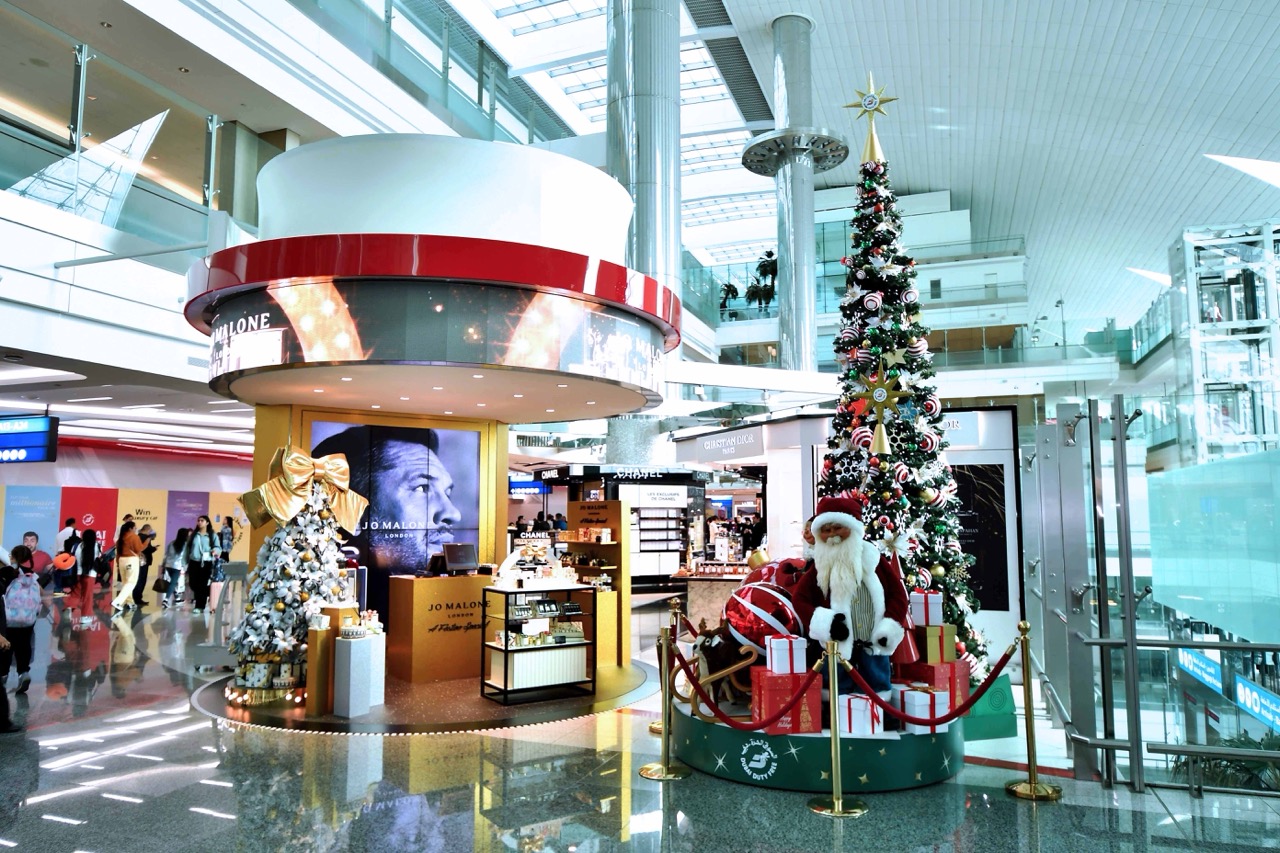MIDDLE EAST/AFRICA. Middle East & Africa Duty Free Association (MEADFA) Advocacy Working Group Secretary General Rita Chidiac has urged industry stakeholders to help tackle the wide-ranging regulatory issues facing travel retail in the region.
Chidiac was speaking during a MEADFA webinar – chaired by Hume Brophy Managing Partner John Hume – which examined the path to regional travel and travel retail recovery, where attendees heard about the association’s recent moves on the advocacy front. These, as reported, include the recent staging of the first in a series of regulatory intelligence sharing sessions for the MEADFA membership, which includes wide representation from brands, landlords and retailers.
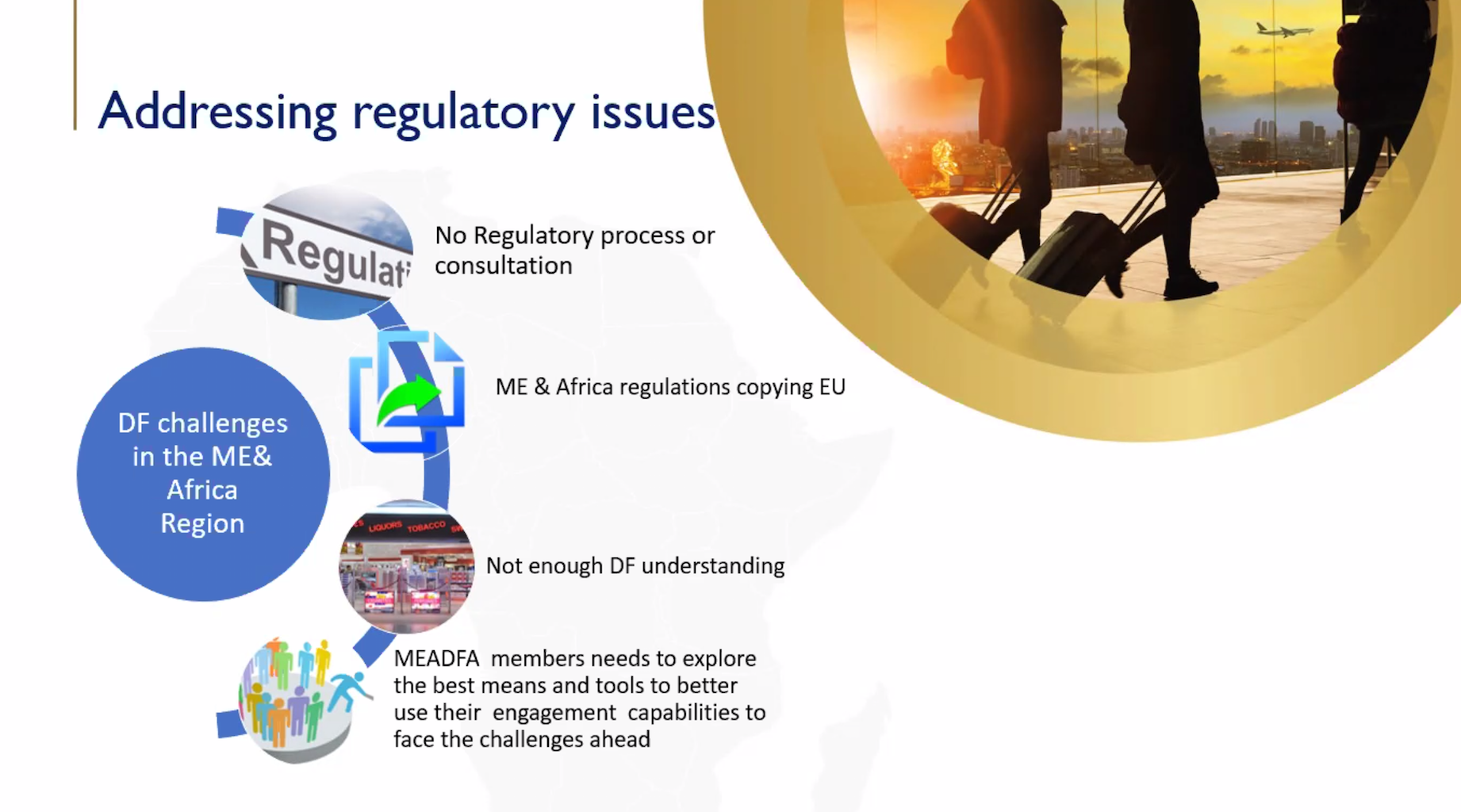
She identified tobacco as the duty free category under the most current threat from regulators – a subject also discussed by Duty Free World Council President Sarah Branquinho – highlighting World Health Organisation (WHO) policies concerning the illicit trade in tobacco products and its “unjustified” implication of duty free as a contributor to the issue.

Chidiac said that the WHO is using this as a mechanism “to achieve its objective of removing the tobacco category from duty free” and warned of a domino effect which could hit other categories. She said: “The threat is real and it is the [whole] duty free concept which is under threat. That’s why if we don’t all cooperate we will lose one category after the other. What is currently facing the tobacco category will eventually be replicated to alcohol, confectionery – you name it.”
Chidiac identified four key challenges facing duty free in the wider Middle East and Africa region. She said: “First is the fact that we don’t have a regulatory process in place. Regulation can be adopted overnight, with no consultation process and no regulatory impact analysis. The second challenge is that Middle East and African regulators are keen to put in place European regulations without taking into account the difference in the economies, and social and political backgrounds.
“The third is that most regulators do not understand the difference between duty free’s unique environment and domestic retail. And last but not least, our members do not yet take into account their full engagement capacity, and utilise the tools that they have to push back and protect their business in the region.“
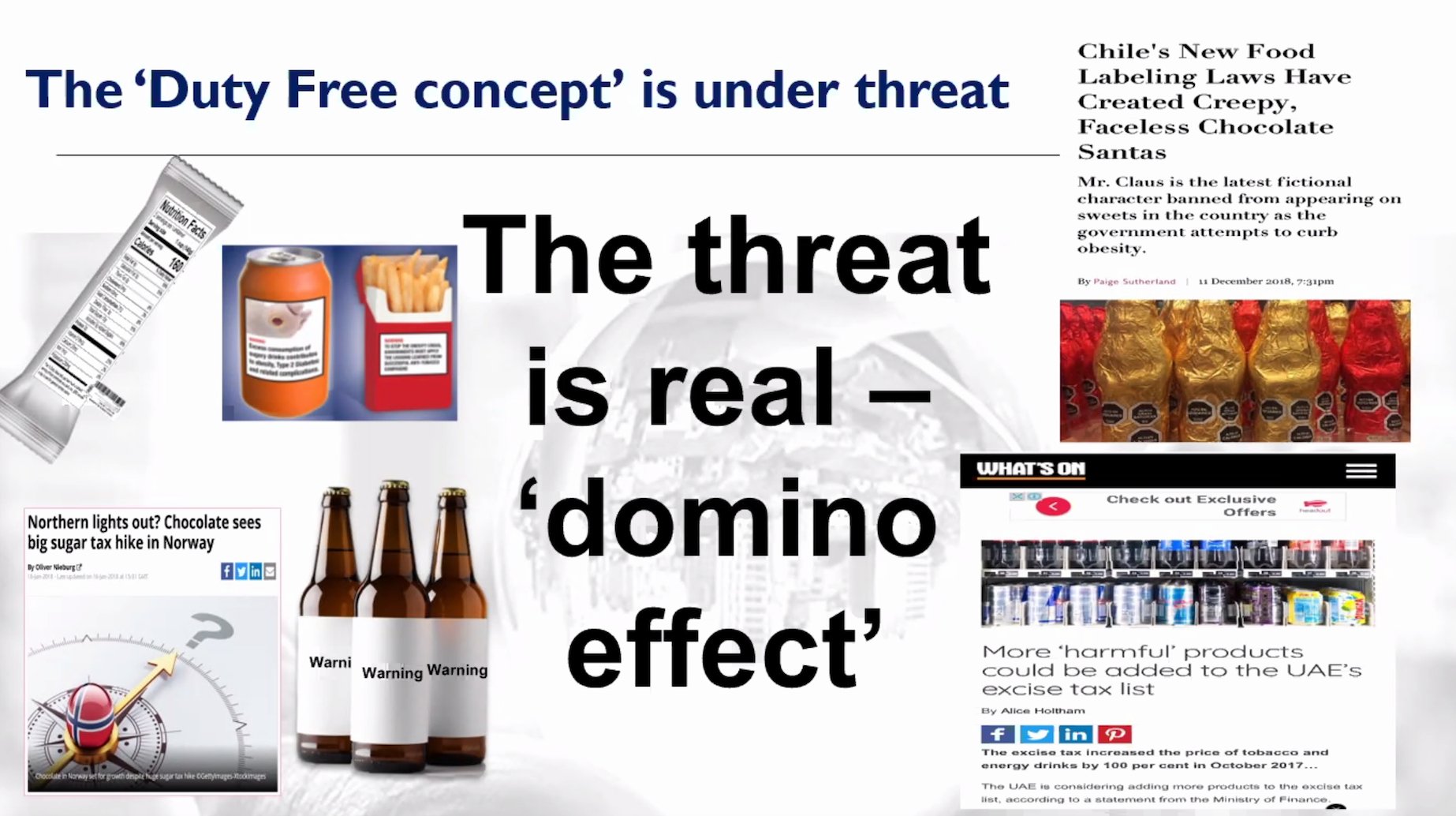
Chidiac urged Middle East and Africa duty free stakeholders across all categories to come together in facing up to these challenges. She said: “It is crucial for all stakeholders to mobilise all of our contacts and to have a unified, loud and strong ‘one voice’ approach. All participants, all brands, all categories are encouraged to reach out. We need to engage with our governments, we need to educate them about our unique operating model that it is an integral part of the travel eco-system and its contribution to non-aeronautical revenue.”

Picking up the subject of the duty free tobacco category threat, Branquinho highlighted the scheduled WHO November meeting to discuss its protocol to eliminate illicit trade and tobacco products. Setting out a clear case to completely distance the duty free industry from the “scurrilous accusations” of involvement in these illegal activities, she said: “We need to ensure that duty free gets a fair hearing, and is not unfairly penalised by a form of trade which we ourselves deplore, and has nothing to do with our highly-regulated industry.”
She added: “Let’s also be clear that our industry is also a victim of the illicit trade in tobacco products. Products sold outside our retail channel and outside legitimate duty paid market channels damage our business. We’re with the WHO on wishing to see illicit trade eliminated, we just don’t want to be unfairly characterised as a contributor to illicit trade.
“So at that stage, the passenger has got three things on their phone: they’ve got their identity, they’ve got their test and vaccine results ultimately, and they have their ok to travel status. This is going to be an absolute game changer. Then we can get back to something resembling what we had two years ago.” – International Airport Transport Association (IATA) Head of Airport, Passenger and Security Products Alan Murray Hayden

“All we ask is for any study to be fair and to take place once the other measures which will help us to further prove the security of our supply chain are in place.”

Branquinho said that MEADFA’s role in fighting the duty free industry’s wrongly alleged links with illicit tobacco trade is a “critical one”. She added: “Engagement through local connections country by country [in the MEADFA region] is incredibly important and will be a decisive factor, perhaps the decisive factor, in achieving our aims. The Duty Free World Council stands ready to work alongside MEADFA.”
Also presenting at the webinar was International Airport Transport Association (IATA) Head of Airport, Passenger and Security Products Alan Murray Hayden, who covered a wide range of practical air travel recovery issues. Asserting that quarantines have been “killing our business”, he said that the focus has to be on testing combined with vaccination as “this is what is going to open up our industry”.
However, he noted, there are two fundamental problems which are facing the industry in terms of testing and vaccination. Firstly, confidence “because we’ve all seen the fake certificates [concerning COVID tests] out there and if that happens with vaccination as well, we could be in trouble”.
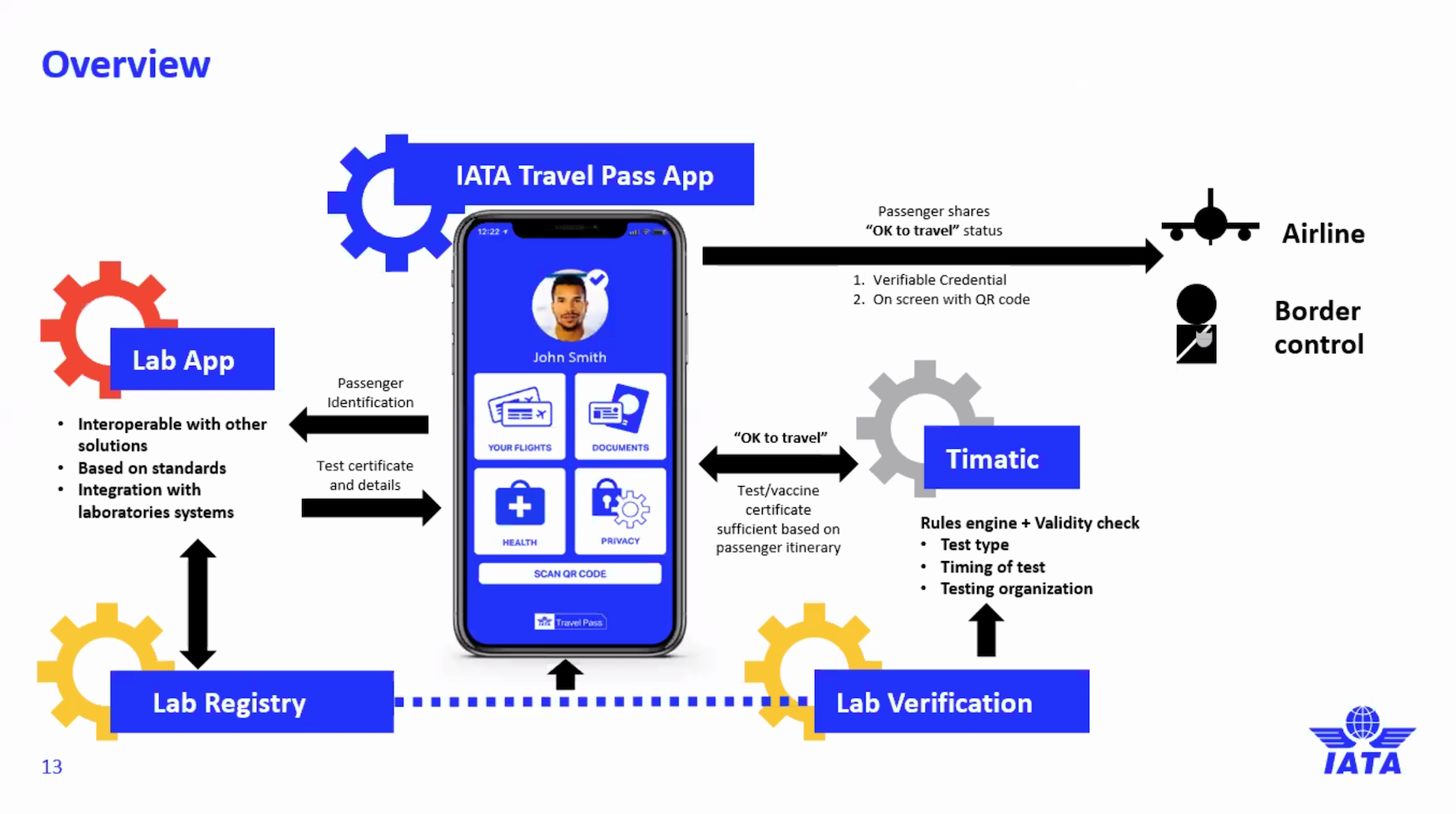
He continued: “The governments, airlines and airports need to have confidence in the test and vaccination documentation which passengers are providing them with. If governments don’t have confidence, they simply will not open their borders up again and get rid of quarantine.
“The second thing is scalability. Currently, many airports are carrying between 5- 10% of the normal passenger volumes, yet the same number of check-in agents are verifying passenger tests and vaccine documentation who would have been present during the busiest day of Summer 2019. What that means is, if everybody had bits of paper with their vaccination and test information, quite frankly, we wouldn’t be able to carry many more people than are being carried today.”
Hayden said there is an urgent need for a digital solution – such as IATA’s own digital Travel Pass – which pulls together all of the necessary information off-airport, so that when passengers arrive at the airport “all their documents have been already checked in and they are ok to go. So at that stage, the passenger has got three things on their phone: they’ve got their identity, they’ve got their test and vaccine results ultimately, and they have their ok to travel status. This is going to be an absolute game changer. Then we can get back to something resembling what we had two years ago.”
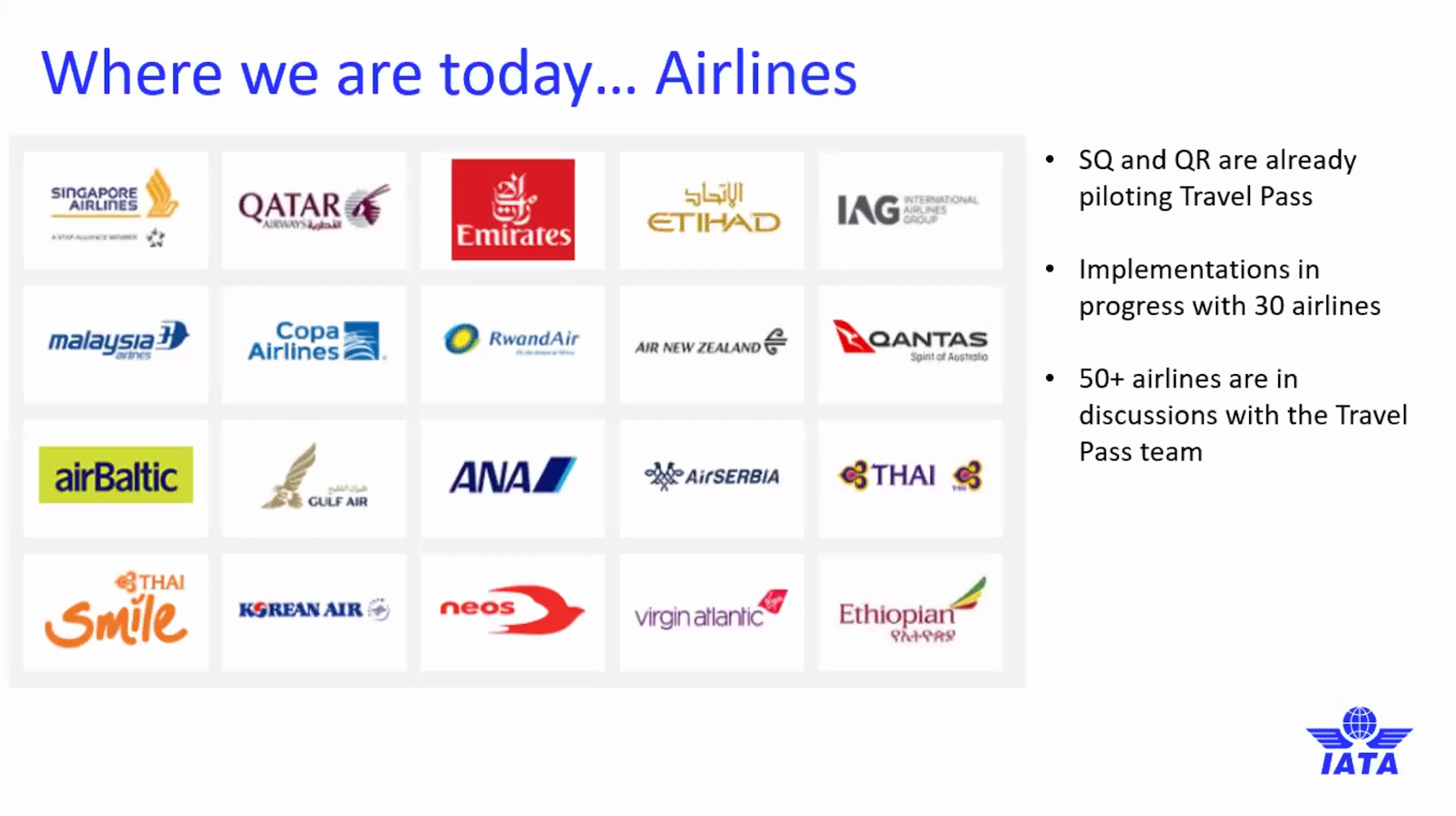
Hayden said that a number of airlines based in the MEADFA region have trialled or will be trialling the IATA Travel Pass soon, including major carriers such as Qatar Airways, Emirates and Etihad.
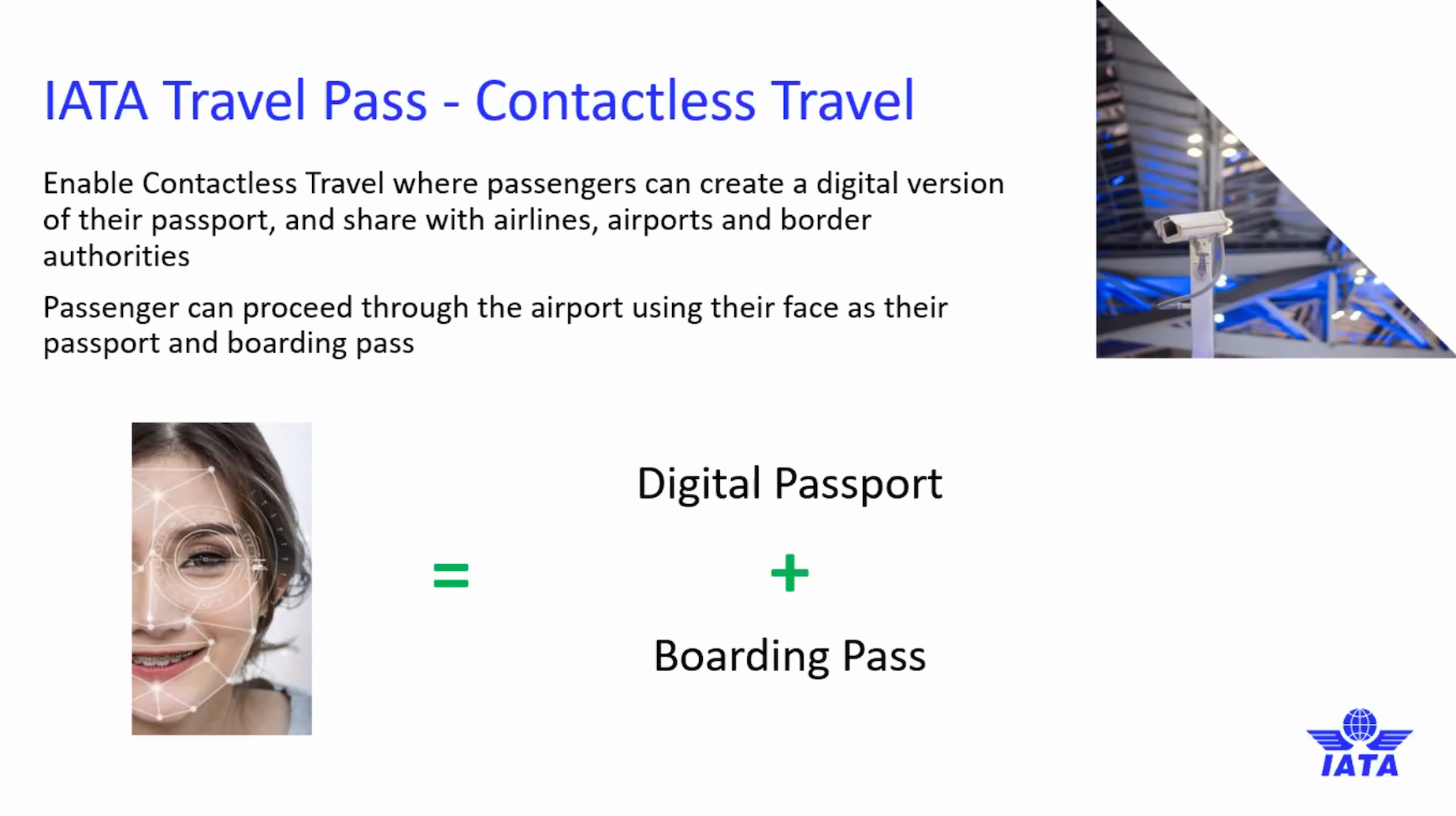
He also highlighted that passenger processing in airports will soon be speeded up by the introduction of facial recognition technology, allowing travellers to pass through the various stages towards boarding in a largely touchless manner. “So in effect, the face becomes their passport and their boarding pass,” he said.
Hayden asserted that this streamlining of passenger flow through airports will present the duty free industry with new challenges. “So combined with COVID, you will probably find that there won’t be quite as many people sitting around or having more time in the airports as happened before the pandemic,” he said. “You can either look at this as a negative thing [if you are a travel retailer] or you could view it as providing new opportunities. I’m not sure what those could be. That’s the challenge for you.”
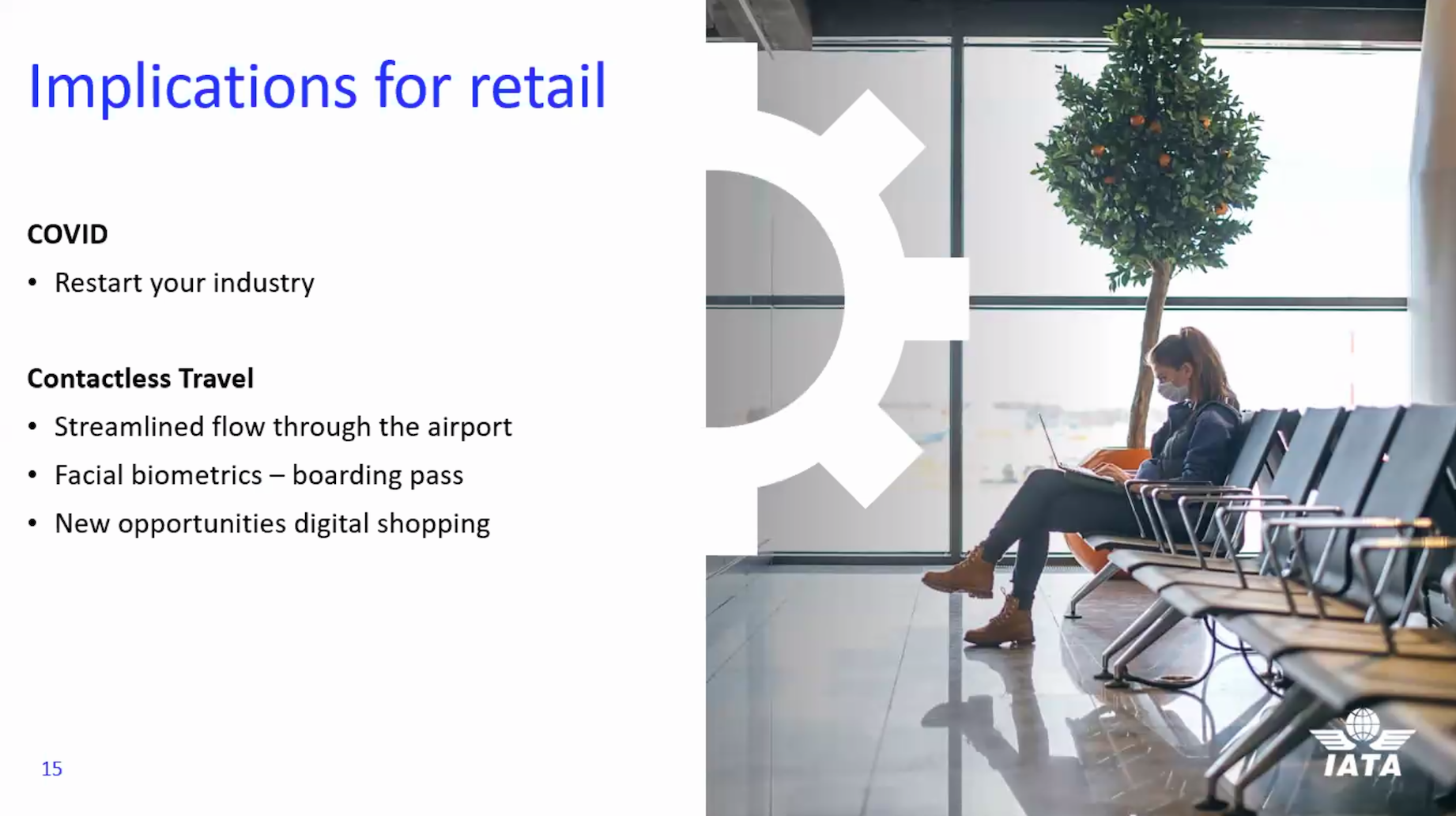
Despite the many current challenges being faced by the aviation and travel retail sectors, MEADFA Vice President Sherif Toulan had introduced the webinar on an optimistic note. He said: “We think and we believe that the worst is already behind us, and that we are witnessing a very small, slow comeback and recovery, in terms of the [duty free] business.”
He added: “Of course, all of us are very much affected – but we very much believe that the trend is going towards the positive side. Most of the negatives are behind us.”











